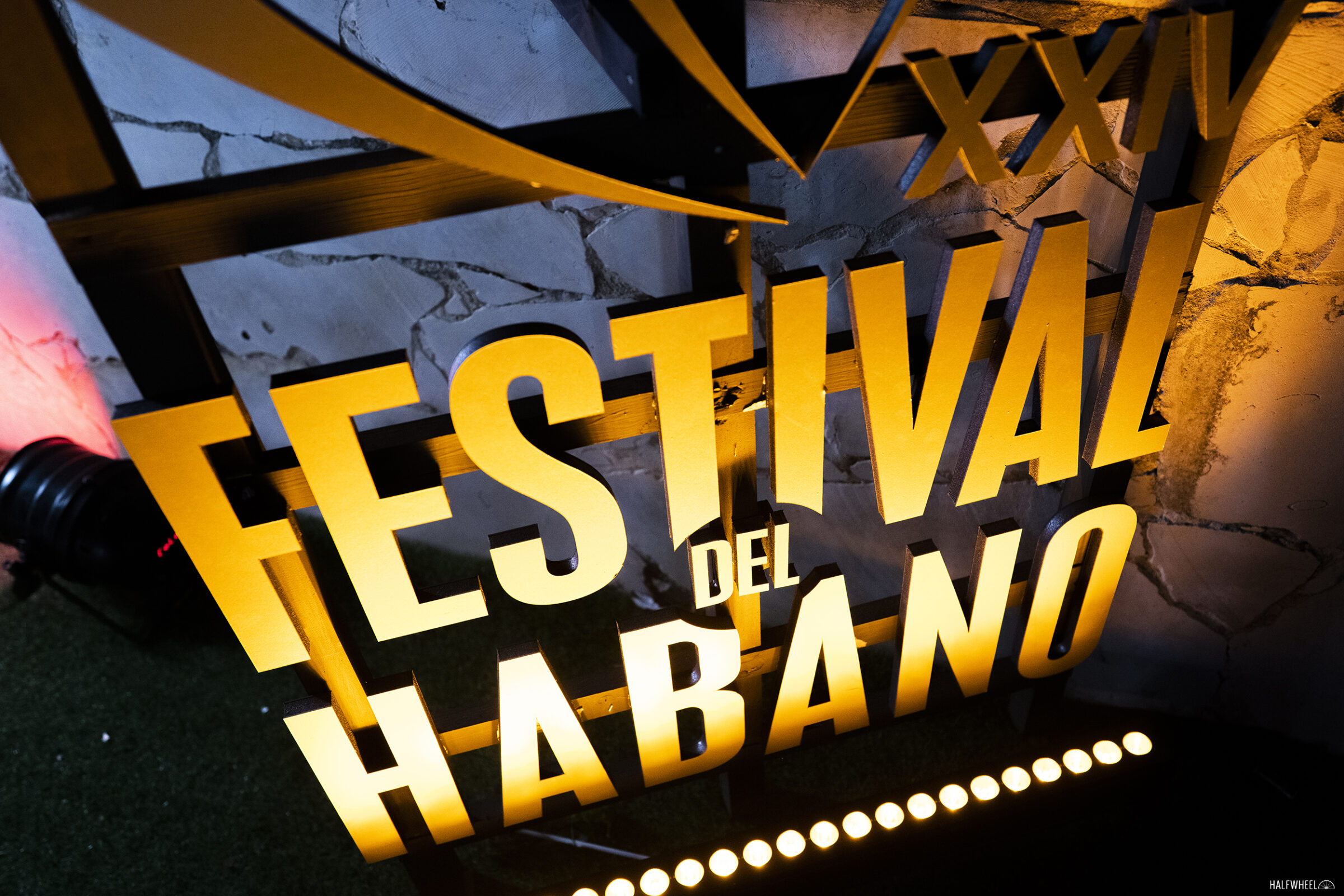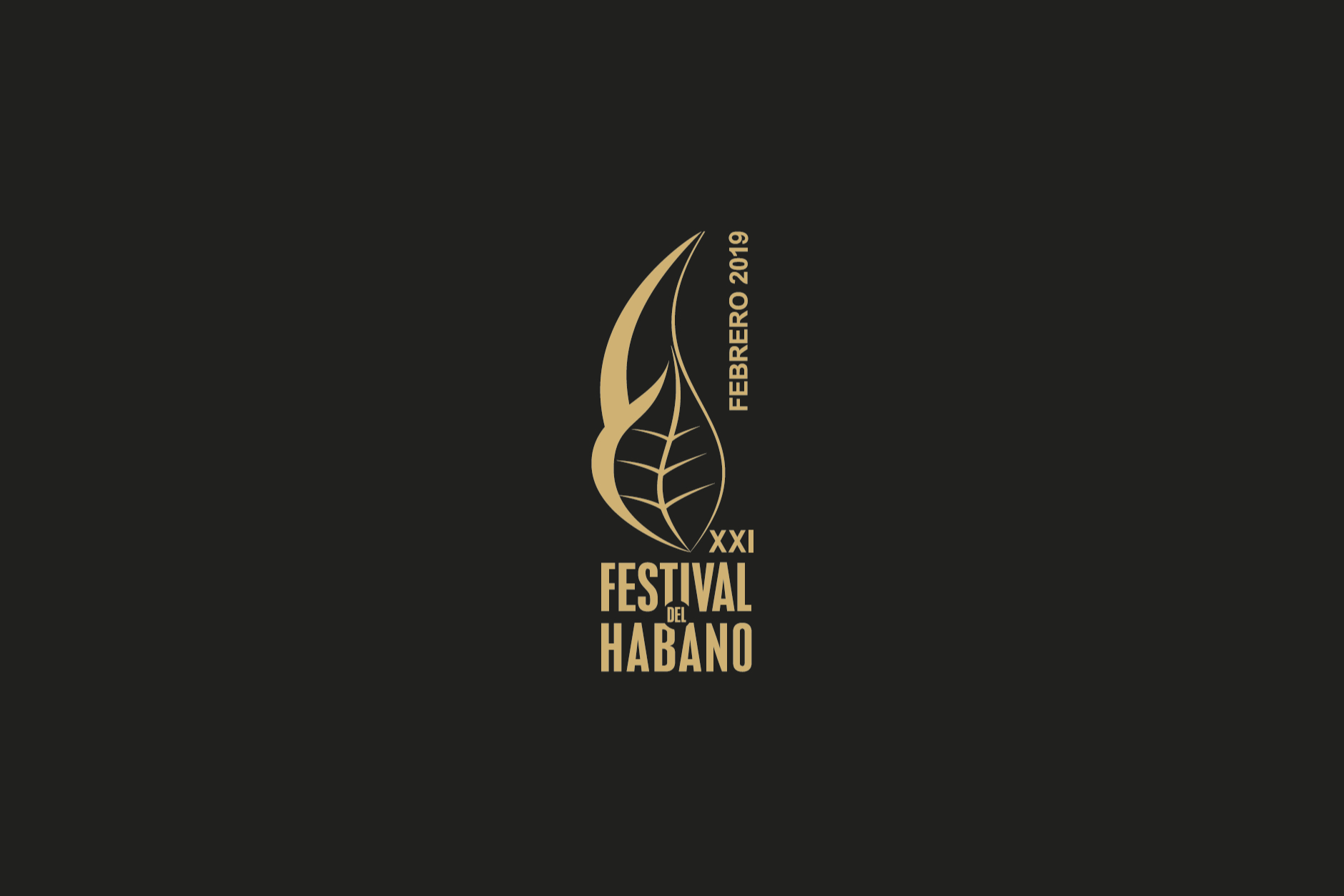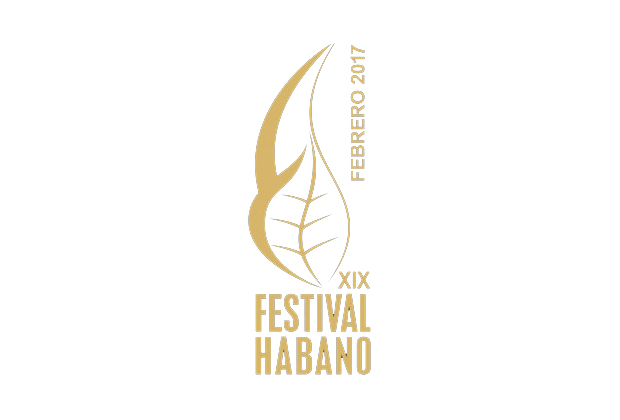No matter how many times I travel to Cuba to cover events there, the last day seems to sneak up and surprise me like a thief in the night.
Thus it was with my last full day in Cuba, which started at the unusually late hour of 7 a.m. with the normal routine of a shower, some work and some breakfast. Then I was off to the convention center, to view the finals of this year’s Habanos World Challenge.
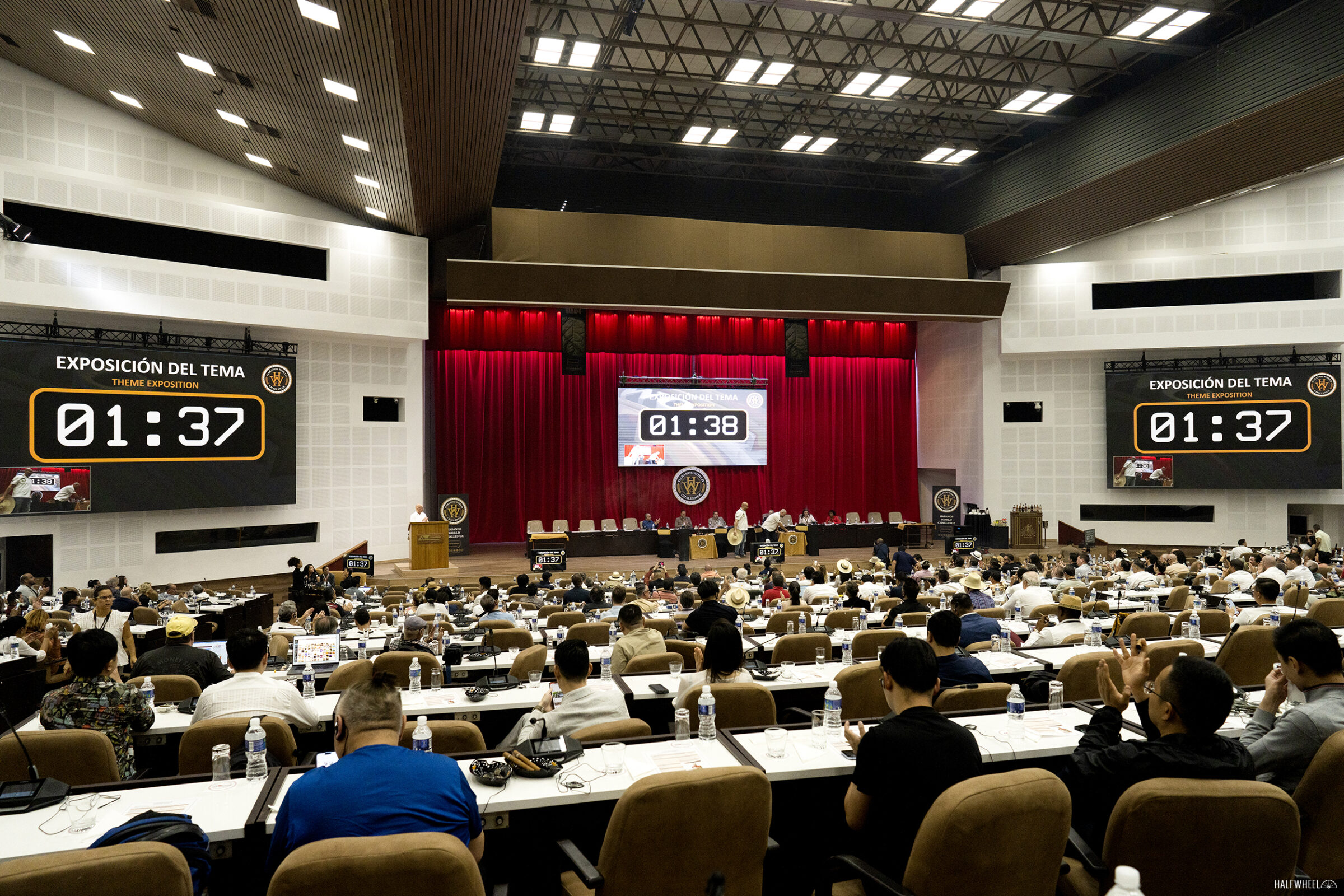
Now in its fifth year, the Habanos World Challenge is a contest that tests the knowledge and experience of contestant teams from all over the world. This year, six different teams passed an initial contest in their home countries of Canada, Colombia, Kuwait, Lebanon, Spain and the United Arab Emirates in order to compete in the final competition. The final day of the contest is between only two teams of two contestants each, with the finalists for this year’s event hailing from Canada and Kuwait.
The contest consists of a number of different portions, including a question section where both teams had to answer as quickly as possible, with questions that included “The Habanos must be preserved with a relative humidity between…” and then gave four different ranges to choose from.
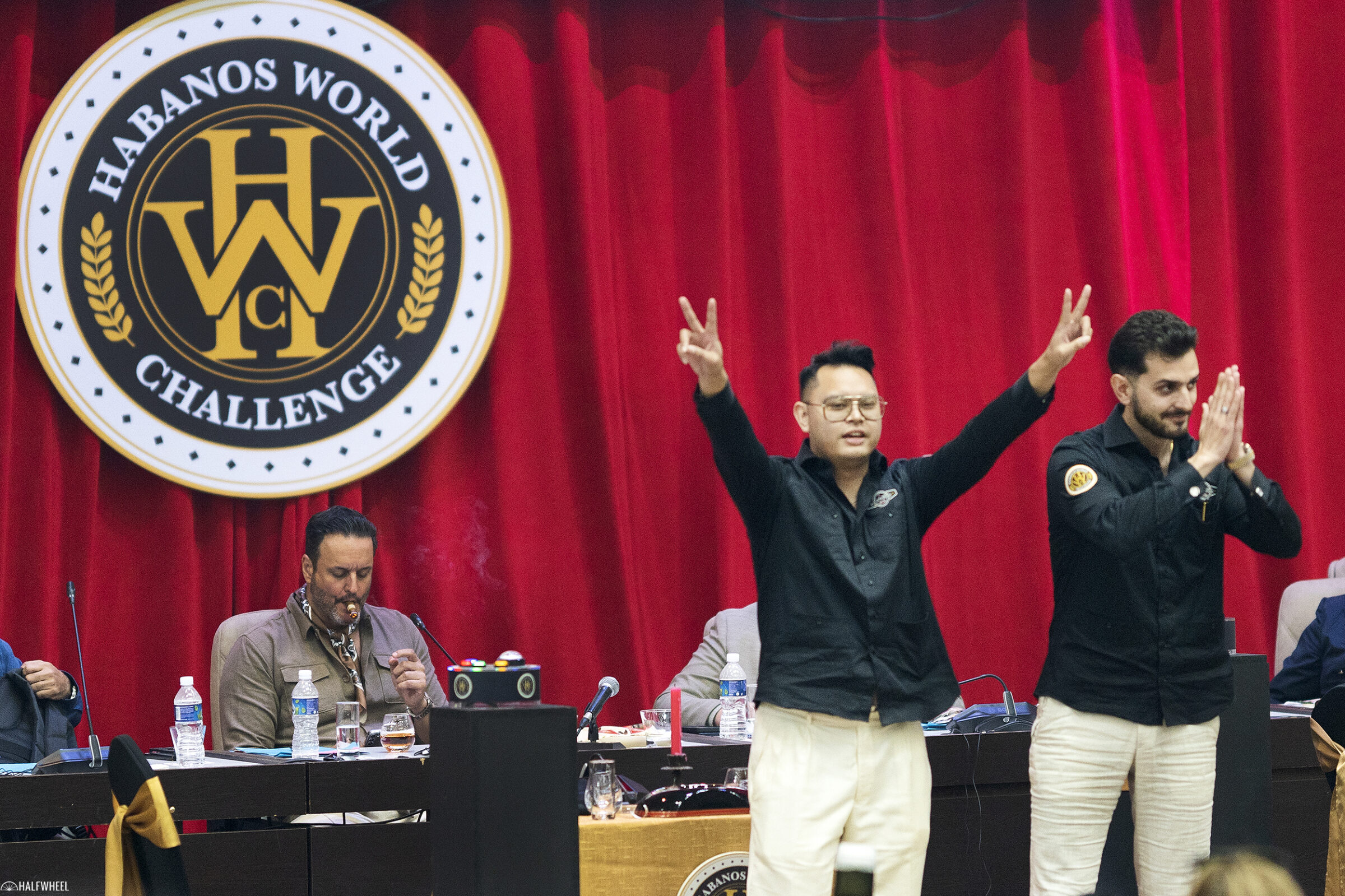
However, I have always found that one of the more interesting parts of the contest is when both teams had to come up with a scenario involving Cuban cigars and act it out on stage. The team from Canada was the clear winner with a skit involving a blind man who was “cured” after proving his knowledge of different Cuban brands, but the team from Kuwait’s skit involving a first-time cigar smoker had some humorous moments as well. In the end, the team from Canada, made up of Aaron Ignacio and Philip Ramos, took the top spot.
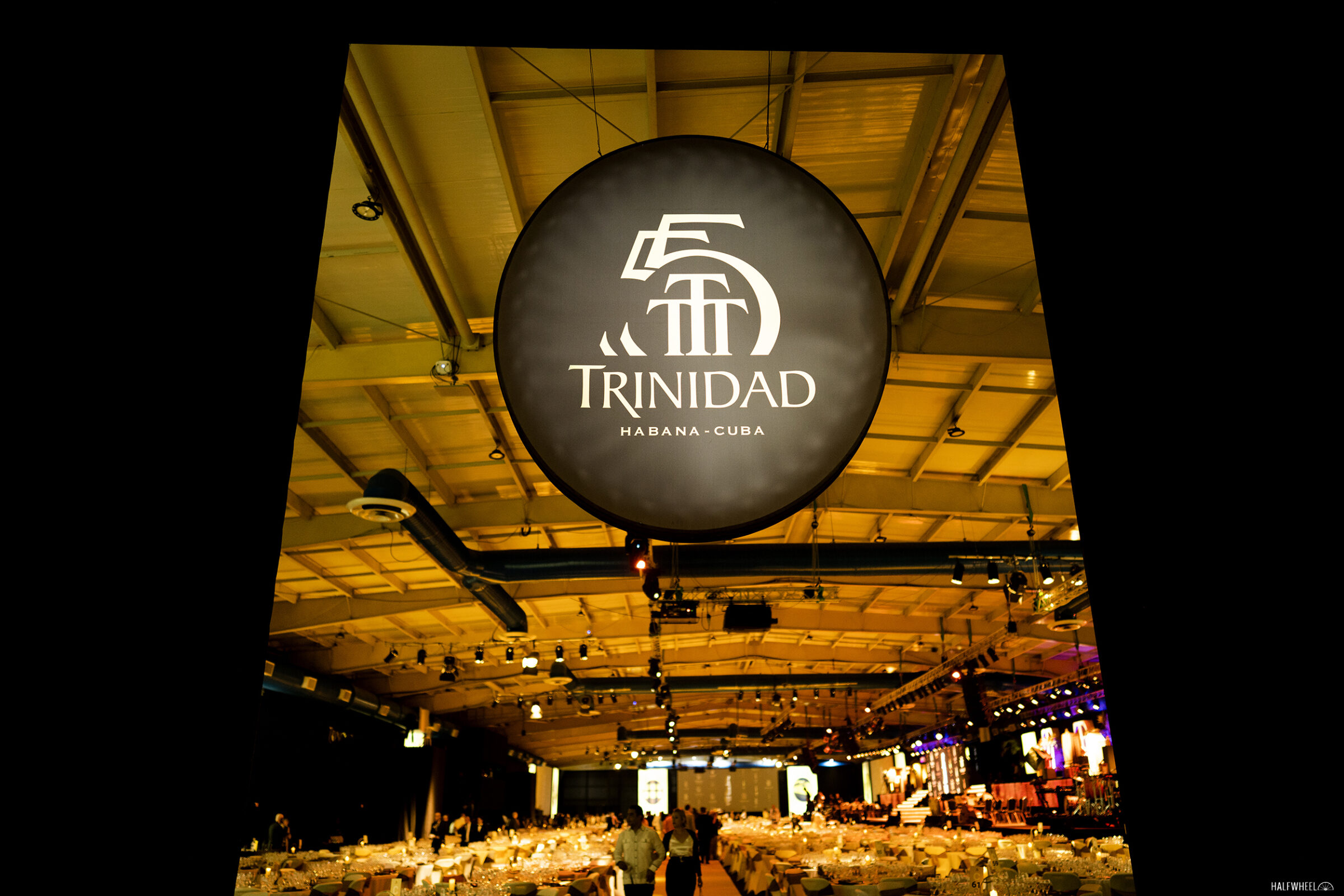
After the Habanos World Challenge ended, I decided to go back and change in order to take some photographs around Havana for a short time, some of which are part of this post. I then rushed back to the house to prepare for the festival’s final event: the Gala Dinner dedicated to the 55th anniversary of the Trinidad brand.
As has been the case every year I have covered the festival, the gala dinner was held at the PABEXPO Center, an indoor facility that is significantly larger and noticeably nicer than those used for any other events held during the week. There were noticeable differences between last year and this year: last year’s 10-top tables compared to eight-top tables this year, and there were no satellite stages scattered throughout the room this year, while three of them were used last year.
Earlier in the day, I had been told to arrive 90 minutes early to get vetted by security due to the fact that Cuban President Miguel Díaz-Canel was attending for the second year in a row. This would also allow me to get photographs of the humidors being auctioned off before the doors officially opened and they were swarmed by attendees, making clean photographs virtually impossible.
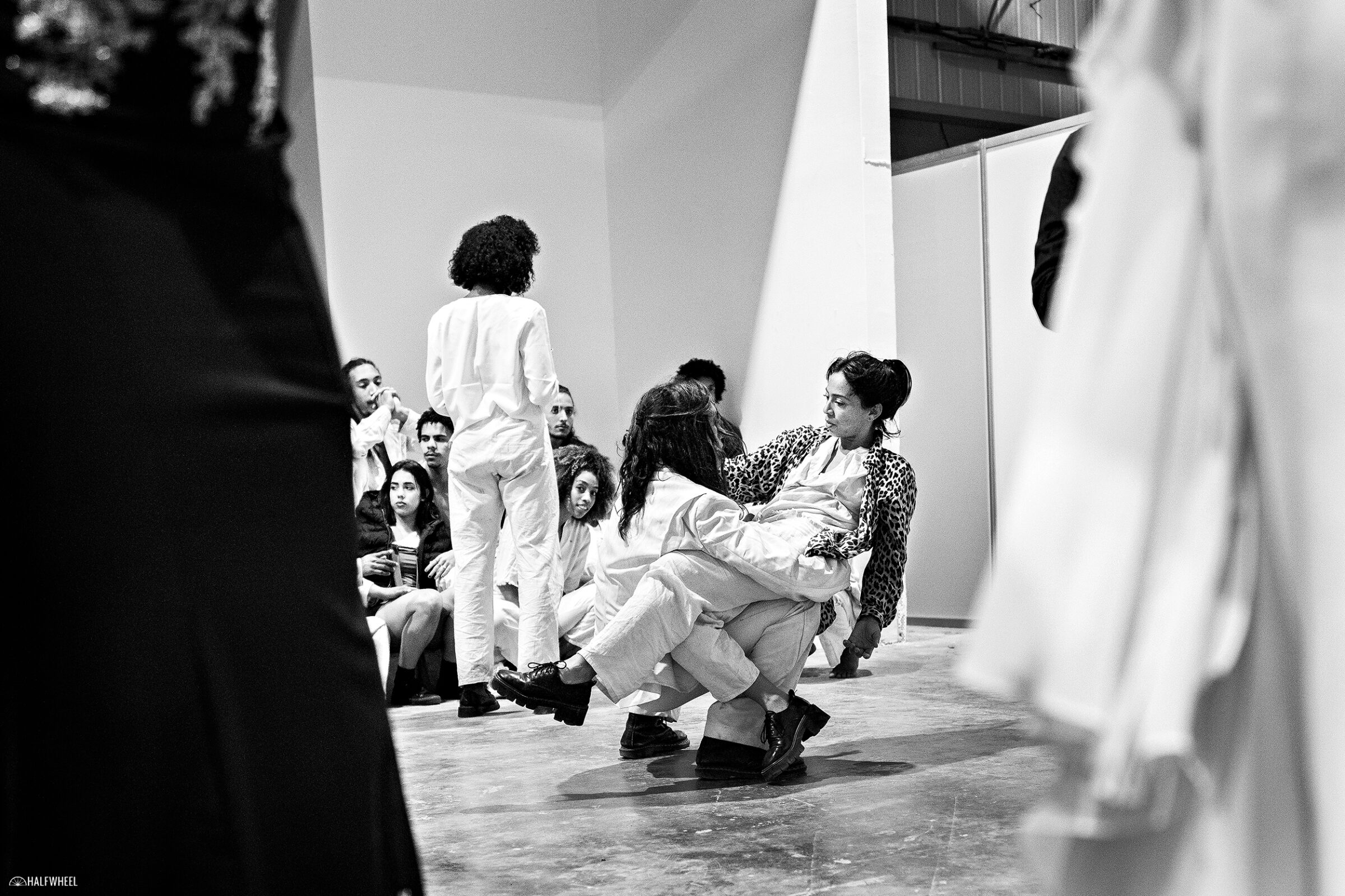
When I got to the PABEXPO Center, I was told to walk to the side of the building, where I stood with a few other media members for about 20 minutes. I was eventually told to go into the same room as last year, where my equipment was checked by both a man and a dog before I was allowed to enter the main building and photograph the humidors for about an hour. Then in between shooting photographs of the various acts rehearsing behind the stage, I sat down to fix the photographs and send them to Charlie, who was back in Dallas writing the actual post about the auction results that would be published right after the last humidor was sold.
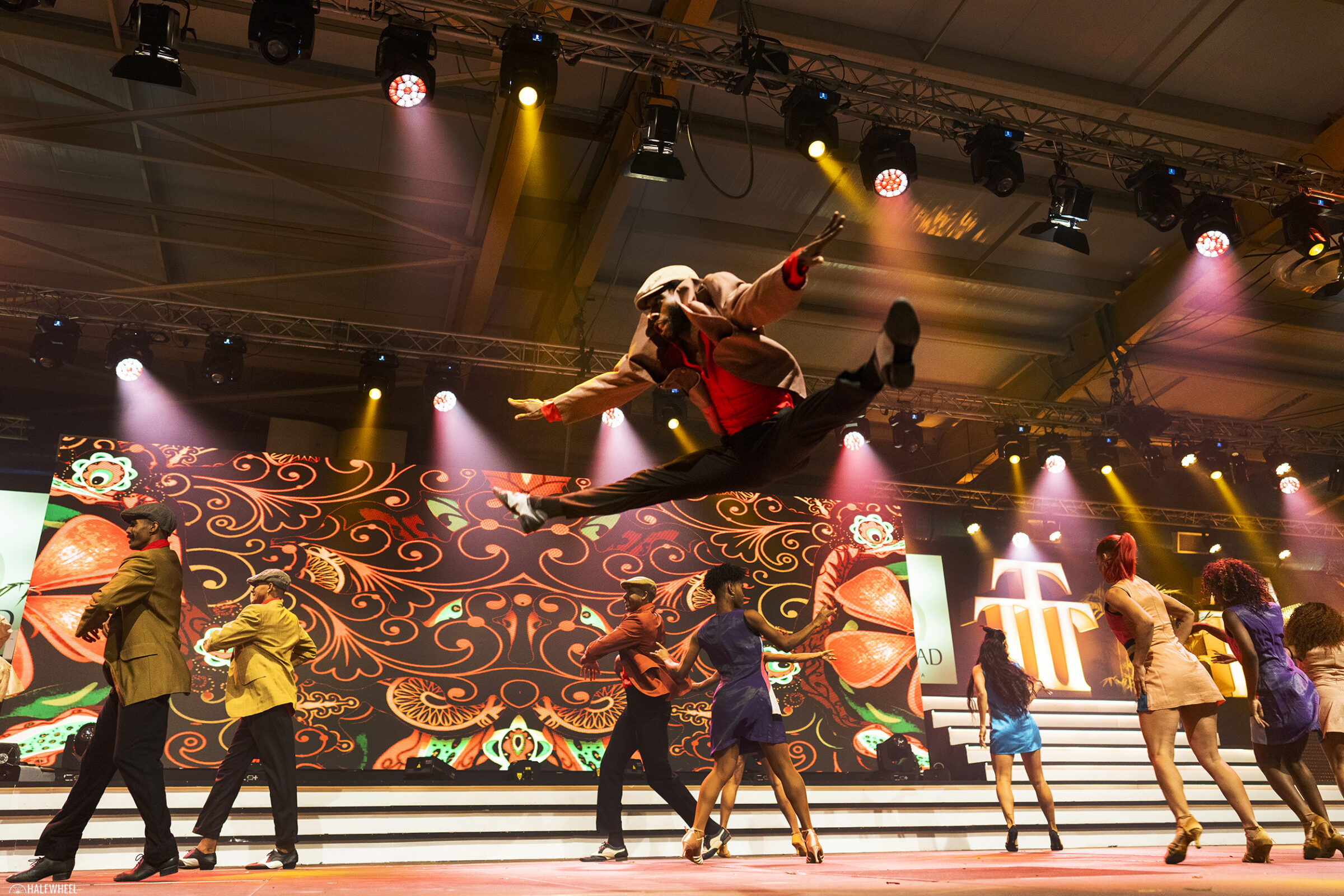
By the time I had finished uploading the first images of the humidors, the Gala dinner was in full swing, with various musical and dance acts taking place. There were multiple musical and dance artists—including Manolito Simonet and Ivan Valiente, Vocal Luna, José María Vitier, Niurka González, Bárbara Llanes, Laritza Bacallao and Alisabeth La Santiaguera.
Habanos S.A. decided to make a change this year when it came to the humidor auction: instead of auctioning off all of the humidors at once at the end of the night, three of the humidors—and a surprise smaller humidor that was not in the catalog—were auctioned off about halfway through the night, while the rest of the humidors were then sold at the end of the night before the last act.

There was also a very interesting light show that included a man who “grabbed” beams of light and used them as props in a musical dance number.
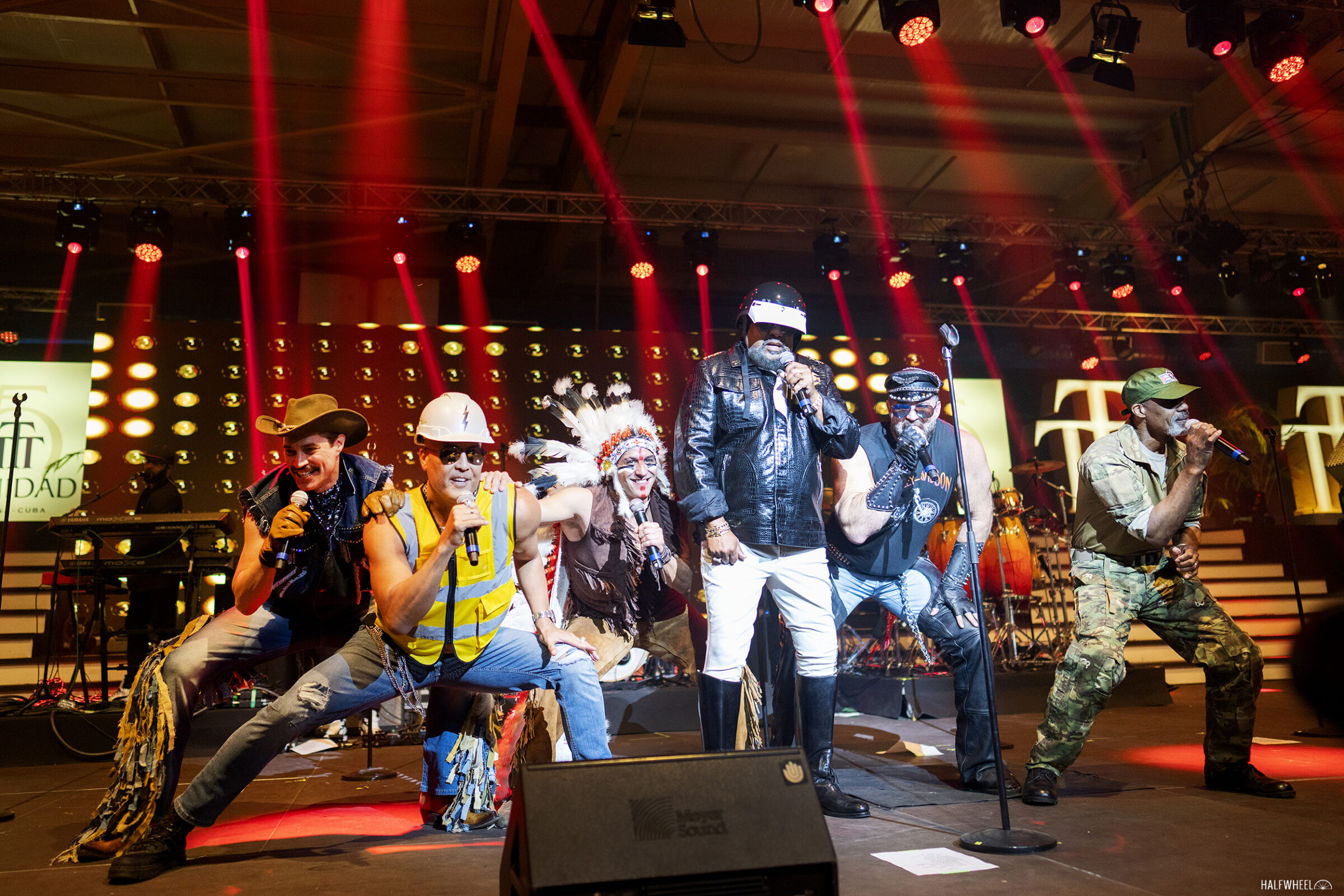
After the last humidor was sold—you can read all about how eight lots generated a record combined sales of €17.8 million ($19.3 million) here—and we published the humidor auction post, the last act of the night came on the stage: none other than the Village People, or at least the newest version of the group. The musical act played all of their top hits—yes, Macho Man was included—and I finally left the event around 2 a.m. in the morning.
I had a little bit of time in the morning before I started my eight-hour trip home, so I went to bed almost immediately after getting to the house and leaving the packing of the cameras, computers, clothes and other assorted items until the morning.
When people find out I travel to Cuba every year, the first question out of people’s mouths is usually some variation of “What is it like there?”
Well, I am absolutely no expert on Cuba as a whole—after all, for the vast majority of the time I have spent on the island, I have stayed in the city of Havana—but virtually every person I have met in the eight years I have been visiting have been exceedingly friendly, kind and helpful to me as a comically obvious visitor who does not come close to fitting in.
In fact, while it may sound corny, one of the best things about my trips to the country is the new people I meet, even if their stories tend to be heartbreaking.
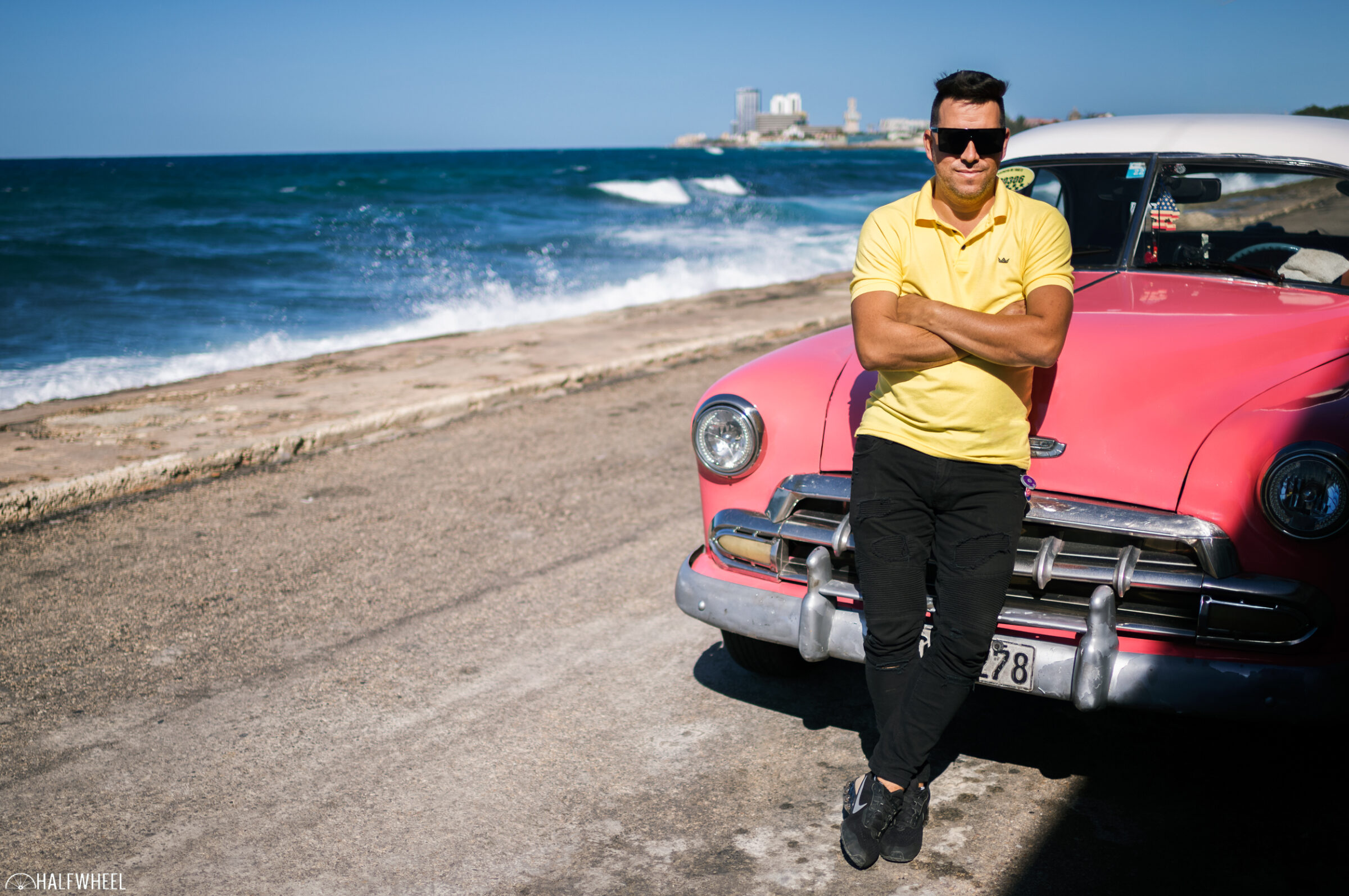
Take Junior, my driver for the entire time I was in Cuba. The 40-year-old owns his own car—as mentioned earlier last week, it is a very well-loved bubblegum pink 1952 Chevy—but sometimes is unable to work due to having no parts when his car breaks down, parts that anyone in a hundred different countries could procure without a second thought.
Junior has a wife and child, but he has not seen them in almost a year. They live in Miami, and he has had issues emigrating to the U.S. His situation is also complicated by the fact that he takes care of his aging parents and would never consider leaving them behind anyway.
Like me, he just wants what is best for his family. Like me, he would do anything in his power to be with his wife and child. But at the moment, due to various factors-most of which are beyond his control-that is not possible.
And so he works and waits, hoping for a change that he is painfully aware may be a very long time in coming, or perhaps may never come at all.
Of course, people are in similar—or much, much worse—situations all over the world. But his plight is very, very real to him, and despite the seeming hopelessness of his plight, Junior is a kind, personable, even gregarious person who does his best in a horrible situation.
As is the case with the majority of Cuban people I have come to know personally, he is resilient, humble and—in sharp contrast to quite a few Americans I know—spends his energy working to make his situation better in any way he can while being thankful for what he has, not resentful for all of the way the world has treated him and mad about things he does not have.
The second most common question I get from people is something along the lines of: “I have always wanted to visit Cuba but have no idea about anything going on there, can you help?”
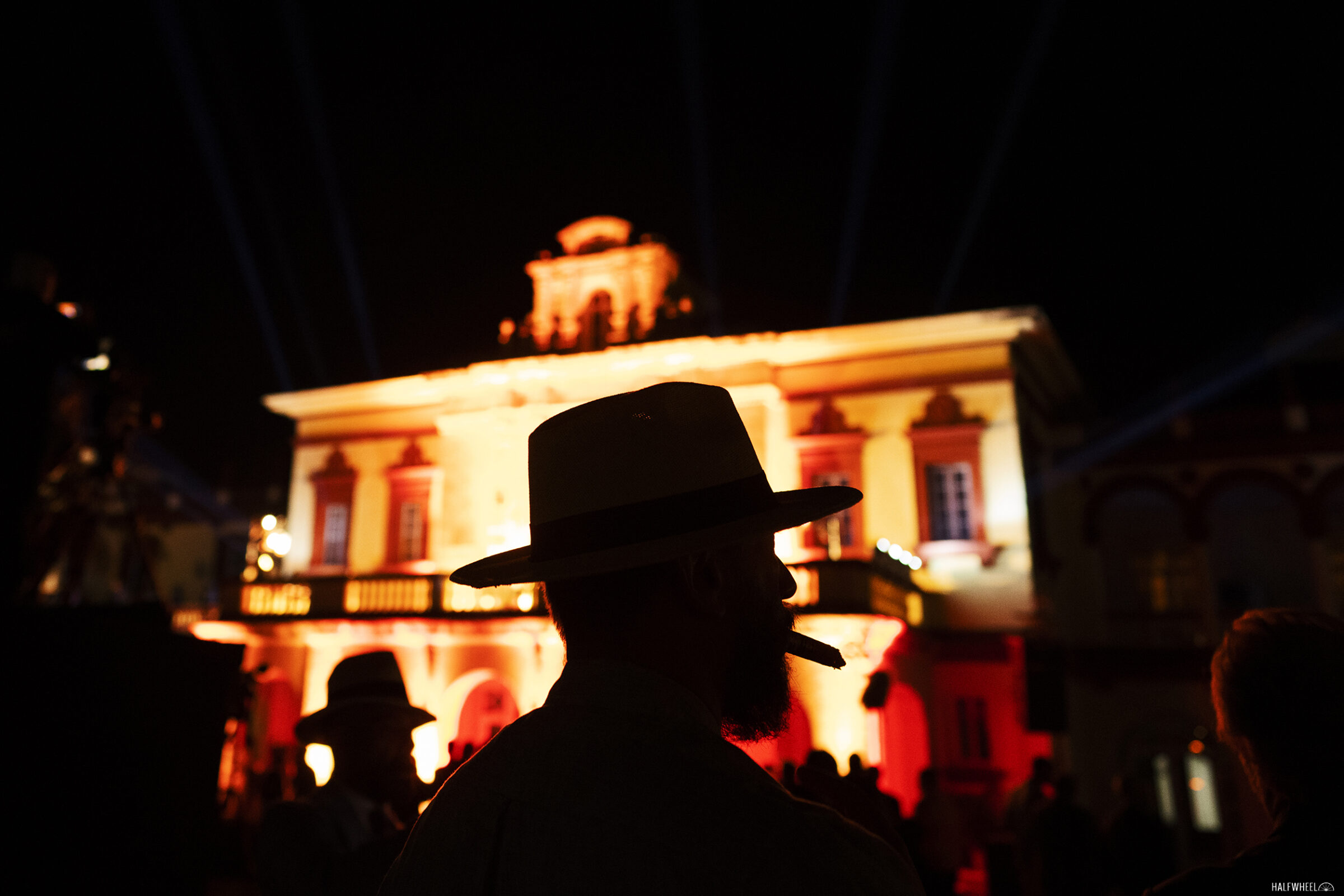
As I stated before, I am far from either a lawyer or an expert on Cuba—or traveling in general, for that matter—but I have picked up a few tips along the way that may be helpful if you are thinking about visiting the island. With that said, please be aware that many situations in Cuba constantly change on a dime, so make sure to confirm any information before you take action on it.
Money
During this most recent trip, the vast majority of people and business we tried to pay with Cuban CUCs turn us down flat, asking instead for American dollars. While the U.S. dollar has always been accepted in some places in the time I have been going to Cuba, this was the first time that I found Cuban currency to be virtually useless and instead relied on dollars and, to a lesser extent, Euros.
In addition, there are signs that U.S.-based credit cards might—and I use the word very, very cautiously—be more widely accepted at some point in the future, but I would not bet the farm on that. You can legally bring in $5,000 cash into the country without declaring it, which should be plenty for most trips.
Restaurants
There are plenty of places to eat out in Havana—I am learning of more all the time—and most that I visited on my last trip had full menus. However, prices are not exactly cheap and seem to be increasing noticeably year after year.
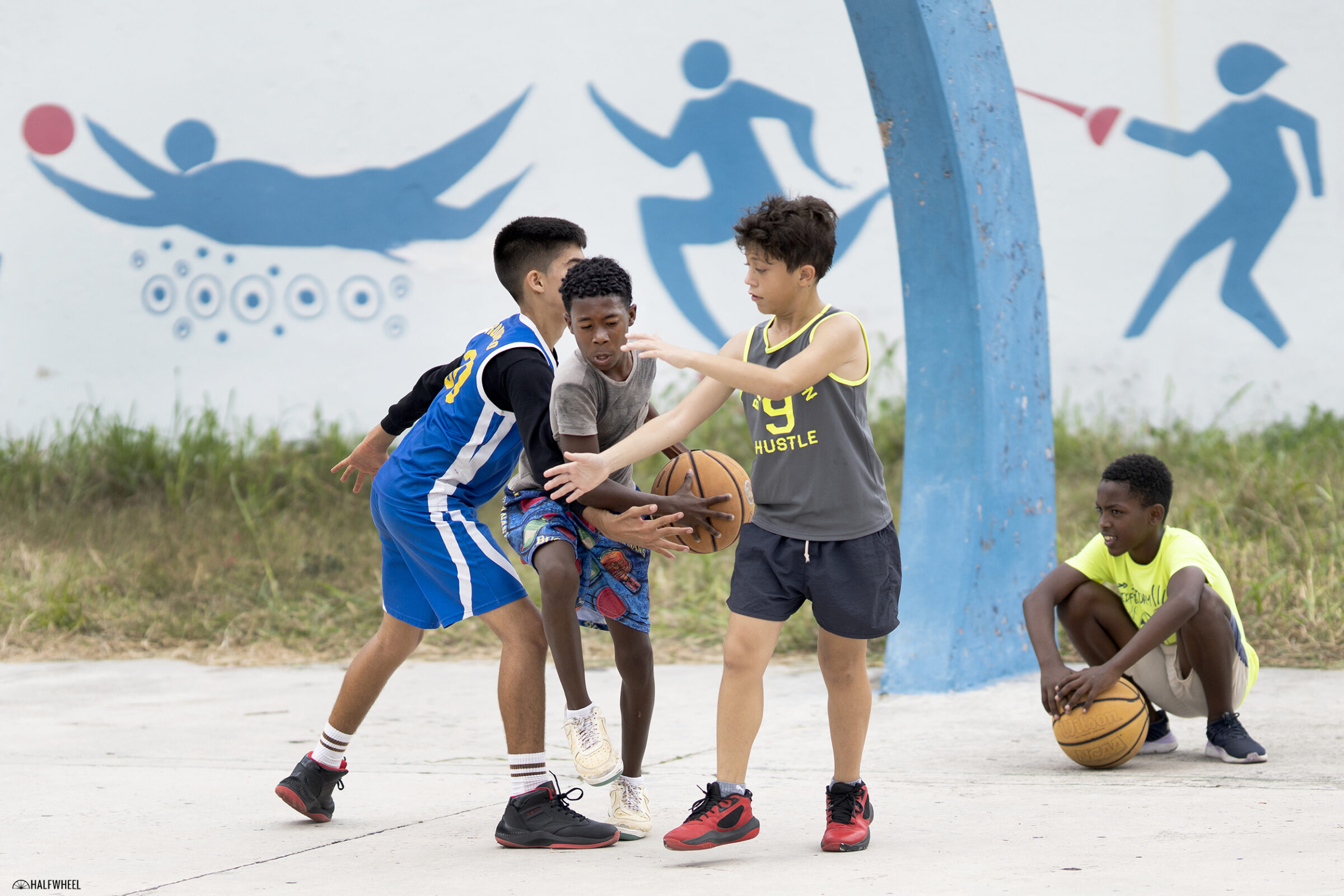
Blackouts
Unlike in years past, I did not experience any blackouts for the entire week I was in Cuba, nor did anyone else that I asked who was staying in Havana. Having said that, at least two different people staying in other parts of the island said they did have rolling blackouts, so it is possible those were kept to a minimum during the festival.
Crime
In all my years of visiting Cuba, crime of any sort has never been an issue for me or anyone I have stayed with. Street crime is virtually unheard of, and I feel safer walking down streets in Havana at 2 a.m. than I ever would in downtown Dallas. You should take all precautions regardless, of course, but the odds of someone stealing a purse/wallet or mugging you are extremely remote.
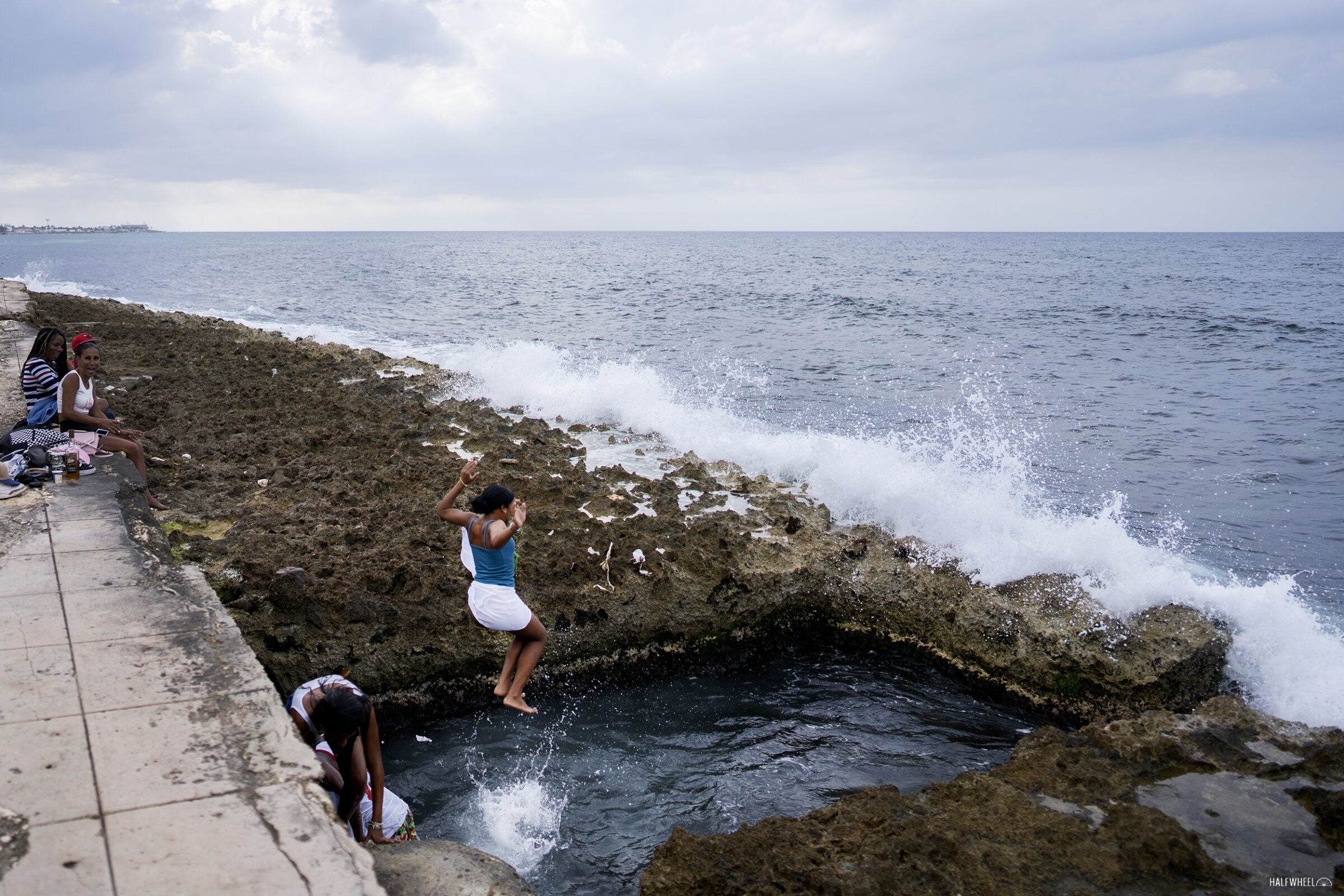
Taxis
At this point, I would tell you that if you are going to be in Cuba for more than about four days and will be traveling around a bit—either around Havana or around the island—it is absolutely worth it to get a driver who will take you wherever you want to go, whenever you want to go, for one fee that is negotiated upfront. Taxis are becoming almost outrageously expensive, and, if past is prologue, I can’t imagine those prices going down significantly any time soon.
Attending the Festival del Habano
The festival usually begins in late February and officially runs from Monday through Friday night. Attendees must register for the event on the Habanos S.A. website after registration opens, but please be aware that there have been years when tickets sold out very, very quickly, so I would not delay if I wanted some. I am not going to get into how to officially visit the island since the embargo is still in place, mostly because I would not know the first thing about that process since I am able to visit the country legally on a journalist visa.
(Editor’s Note: a previous version of this article stated at the Canadaian team acted out the skit involving a first-time cigar smoker and that the team from Kuwiat had a sskit involving a blind man who was “cured” after proving his knowledge of different Cuban brands. In fact, the opposite is correct and the article has been changed to reflect that fact.

